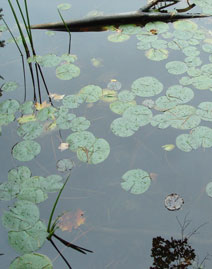DACF Home → Bureaus & Programs → Bureau of Agriculture → Division of Animal and Plant Health → Board of Pesticides Control → Water Quality Program

Water Quality Program
Ground water is an essential resource providing drinking water for many of Maine's citizens. Because pesticides have been detected in some of Maine's wells, the BPC has collaborated with other agencies to develop a strategy to protect this resource.
The Generic State Management Plan for Pesticides and Ground Water was developed in 1994 and revised in 1998. The plan's goal is to assess potential contamination problems, and once a pesticide is detected, assess the extent of the problem. Pesticide management practices are then implemented in response to identified contamination trends. The plan calls for statewide ground water monitoring every 5–7 years and the creation of pesticide-specific state management plans where needed.
In response to many low-level detections of the blueberry pesticide hexazinone in ground water in some parts of the state, BPC developed the Hexazinone State Management Plan for the Protection of Ground Water in 1996. This plan outlines the duties of cooperating agencies, hexazinone best management practices and hexazinone ground water monitoring to occur every 4 years.
Water Quality Studies
Reports on surface water findings, as well as ground water findings, can be viewed below or obtained by calling the BPC at 207-287-2731.

BPC staffer collects a water sample.
- 2023 Aerial Forestry Study (PDF)
- 2021 Surveillance for Current-use Pesticides in Maine’s Freshwater Resources Along a Population Gradient (PDF)
- 2015 Interim Report on the Environmental Risk Advisory Committee Study of Pesticides and Lobsters (PDF)
- 2007 Report on Monitoring of Pesticide Drift from Applications to Control Browntail Moth (PDF)
- 2006 Monitoring of Pesticide Drift from Applications to Control Browntail Moth (PDF)
- Pyrethroid Analysis Performed at the University of Maine Food and Chemical Safety Laboratory, Orono, Maine, January–April 2007 (PDF)
- 2006 Ground Water Monitoring of Hexazinone (PDF)
- 2005 Pesticides and Ground Water Monitoring Program (PDF)
- 2004 Drift Study of Aerially Applied Blueberry Pesticides (PDF)
- 2003 Drift Study of Two Aerially Applied Blueberry Pesticide (PDF)
- 2002 Pleasant River Time Series Study (PDF)
- 2002 Ground Water Monitoring of Hexazione (PDF)
- A Pilot Study: Railroad Right of Way Herbicides and Maine’s Surface and Ground Water (PDF)
Water Quality Program Updates
- Water Quality Program 2015 Update to Board of 2014 Sampling (PDF)
- Water Quality Program- 2012 Update to Board of 2010-11 Sampling (PDF)
- Water Quality Program- 2011 Update to Board of 2009-10 Sampling Results (PDF)
- Water Quality Program- 2010 Update to Board of 2009-10 Sampling Results (PDF)